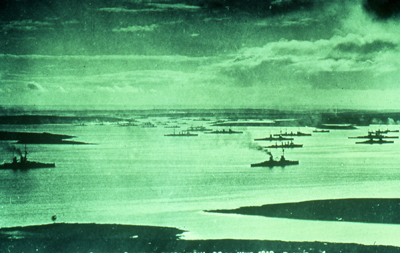
Bernie Chowdhury, CHT, is a popular and engaging speaker who has presented at dive shows, shops and clubs throughout the U.S., and in eight foreign countries.
He has worn many hats during his 24 years in diving, including: instructor, expedition organizer, industry consultant, documentary co-producer, lecturer, magazine publisher, and author, to name a few. His first book, The Last Dive, (non-fiction, published by HarperCollins in North America, Oct., 2000; paperback, March, 2002) has received critical acclaim.
It has been published in 10 languages, and two audio versions. Bernie is a Fellow of the Explorers Club, was named 2001 Diver of the Year (Education) by Beneath the Sea, which hosts North America’s largest consumer scuba diving show (at New Jersey’s Meadowlands), was on the Board of Directors of the Historical Diving Society and was tech column editor for Canadian-based Diver magazine. He has been a (U.S.) board-certified hyperbaric technologist (CHT) since 2004. Bernie presented at Shipwrecks/2002 (The Last Dive) and Shipwrecks/2003 (Norway: “Wrecks of the Norwegian Arctic at Narvik”)
“Controversial War Wrecks of the Orkney Islands/Scapa Flow”

Scapa Flow, in Scotland’s Orkney Islands, is Europe’s wreck diving Mecca. All levels of diver, from cold water beginners through the most experienced technical divers, have plenty of history – and controversial wrecks – to explore. The main attraction for divers continues to be the remnants of the German World War l High Seas Fleet, which fought that war’s major naval conflict, the Battle of Jutland. These wrecks include three dreadnought class battleships and four light cruisers.
In recent years, the rise of technical diving has opened up ever more challenging sites. In May, 1996, a team of technical divers from the British Army set out to find and dive the World War l British destroyer H.M.S. Pheasant, which sank mysteriously in 1917. This project was the first of its kind approved by the British military and is noteworthy because it employed technical, rather than commercial or military, techniques.
The team found what it believes to be the H.M.S. Pheasant in 280 feet. Some of Bernie’s underwater video taken on this project was shown on BBC Scotland news. Other dives in the Orkney Islands include the controversial war grave H.M.S. Hampshire, which took British Secretary for War Lord Kitchener and his general staff to their graves in June, 1916, at the height of World War l. Recent British Parliamentary action has now officially restricted these sites. Video and slides from Bernie’s fourteen trips to Orkney will be shown.



